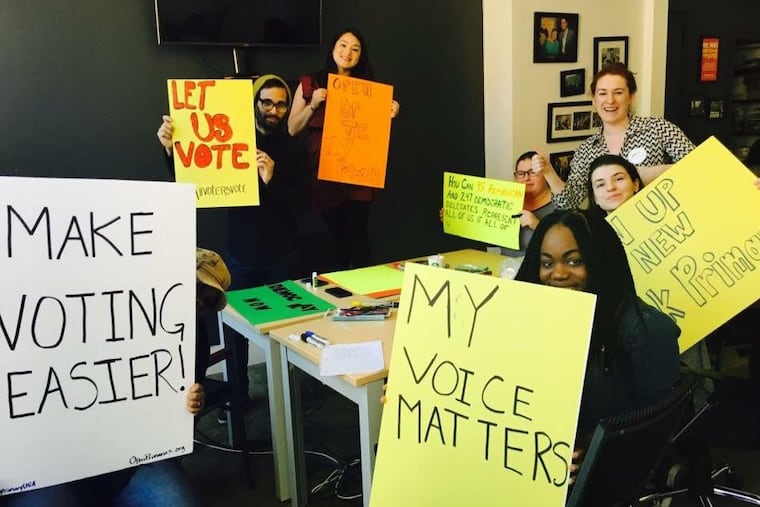Political empowerment starts with open primaries | Opinion
Pennsylvania can fight toxic partisanship with open primary elections.

Philadelphia is where I was born and grew up, amid the underground subeconomy of poverty in South Philly's black community. I know something about feeling trapped at the bottom of the world with little hope. I became a doctor to help improve the conditions in which people live and to help others overcome those odds.
I became involved in political reform after my medical residency. As a young physician practicing on the West Side of Chicago, I saw firsthand how isolated the community was from the political processes that directly affected people's lives through housing, education, health care, social development, and more. Voter participation at all stages of elections is critical for the black community to be politically empowered, as are competitive elections that allow for real choice and accountability.
The current state of politics in our country is one of deep moral crisis in which partisanship is eroding our government and dividing the American people. It's not sufficient to say "you have to vote" in our community, because the process itself has been corroded and corrupted by partisanship.
The African American community has always been on the forefront of the fight for fairness, inclusion, civil rights, and democracy, and today is no different. Our community has an important role to play in supporting and pushing important reforms — like open primaries — so that every voter can participate on an even playing field.
Philadelphia is the birthplace of the nation, of the Declaration of Independence and the U.S. Constitution. This year marks the 150th anniversary of the passage of the 14th Amendment, which states that "no state shall … deny to any person within its jurisdiction the equal protection of the laws." I believe that the nation's ideals can only gain concrete and full expression through an open and democratic political process.
And yet in Philadelphia's own state, democratic processes have been thwarted by closed primaries, which allow only those registered in a political party to vote. This election structure excludes independent, unaffiliated, and third-party members from primary voting.
In Pennsylvania, that includes 1.2 million unaffiliated and third-party voters who cannot vote in the primaries. Philadelphia alone has about 127,000 independent and third-party voters, an increase of more than 50 percent in the last 10 years. Many of those voters are young people and people of color. Independents are the fastest growing group of voters in the state, and nationally, 44 percent of voters identify as independent. These Pennsylvanians deserve a chance to participate in democracy at every stage of voting without being required to join a political party.
Fortunately, legislation has been introduced in the Pennsylvania legislature to open primary elections to include independent voters. Senate President Pro Tempore Joe Scarnati (R., Jefferson), state Sen. Lisa M. Boscola (D., Lehigh), and House Majority Leader Dave Reed (R., Indiana) have been leading this effort. It is a hopeful sign to see Democrats and Republicans coming together to support such reform.
As Sen. Scarnati noted upon introducing his bill: "In our most recent primary election, only 18 percent of Pennsylvania's registered voters went to the ballot box to cast a vote. The low turnout can in part be attributed to voters feeling disenfranchised by both major parties, who have taken control of our primary process. Allowing more people the opportunity to have a voice in their representation is an important step toward ensuring democracy."
The midterm elections have now come and gone. But partisan rancor is only worsening and continuing to force Americans further apart. It's time to come together to fix our democracy and give power back to the people, not to the parties.
Jessie Fields is a physician and a board member of Open Primaries, a nonprofit election reform organization.